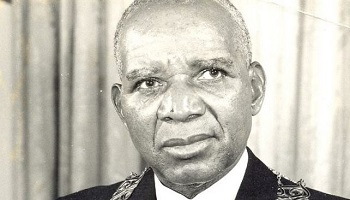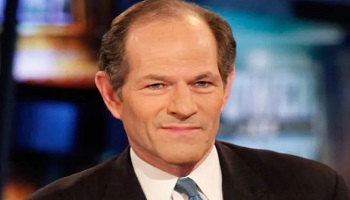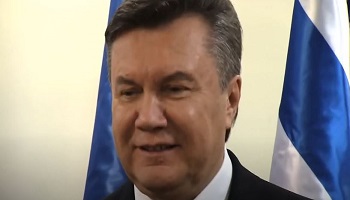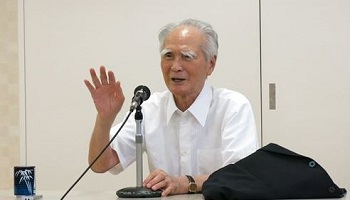
Unveiling Pope Francis Net Worth Myths Realities and the True Measure of Wealth in the Vatican
When people hear “Pope Francis,” they often think of a spiritual leader, a symbol of humility and compassion for millions worldwide. However, the concept of a “net worth” associated with the Pope tends to spark curiosity and speculation. How much wealth does the Pope personally own? Does he live a life of luxury hidden behind Vatican walls, or does his role align with the values he preaches?
Let’s dive into these questions, exploring the complexities of wealth, possessions, and influence as they pertain to Pope Francis and the Vatican. This post will examine myths about the Pope’s net worth, the actual resources of the Vatican, and the unique relationship between faith and financial responsibility in one of the world’s most recognized religious institutions.
Understanding the Role of the Pope: A Position, Not a Personal Empire
Pope Francis, born Jorge Mario Bergoglio, took on the role of Pope in 2013. His position as the head of the Roman Catholic Church does not entail personal wealth in the conventional sense. While he does oversee one of the oldest religious institutions in the world, the assets and resources of the Catholic Church belong to the institution—not to him as an individual.
The Pope is considered a “steward” rather than an owner. The wealth associated with the Vatican is often interpreted as personal wealth, but this is a misconception. Unlike a CEO of a corporation who might accumulate wealth through salary and shares, the Pope’s lifestyle and income are regulated, reflecting the Church’s teachings on modesty and humility.
Myth vs. Reality: How Much is Pope Francis “Worth”?
Estimates about Pope Francis’s personal net worth often misrepresent the reality of his position. While some sources cite figures as high as millions of dollars, these numbers are based on the wealth of the Vatican rather than the Pope’s own finances.
Historically, popes have not had a personal salary. Instead, Pope Francis’s needs, including housing, food, healthcare, and travel, are provided by the Vatican. Any income he does receive is allocated for charitable causes, consistent with his commitment to simplicity. Pope Francis, in particular, has become known for his modest approach—eschewing luxurious clothing, cars, and the usual symbols of power. He has also criticized materialism and has actively sought to distance the Church from displays of excessive wealth.
In practical terms, Pope Francis lives with no personal wealth. The finances supporting his lifestyle and duties are directed by the Vatican, with a strong emphasis on modesty and stewardship.
Vatican Wealth: Art, History, and a Unique Financial Structure
The Vatican is often viewed as a wealthy institution, and this is not entirely inaccurate. However, much of its wealth is tied up in assets that are either non-liquid or exist for public viewing and preservation. This includes:
Art Collections: The Vatican holds one of the most valuable collections of art in the world, including works by Michelangelo, Raphael, and Caravaggio. The Sistine Chapel, for example, is invaluable and impossible to monetize. The Vatican Museums are among the world’s most visited attractions, but this art is kept in trust for humanity rather than as a private collection for the Pope.
Historical Properties: The Vatican owns historic sites and buildings in Vatican City, which serve religious and administrative purposes. Although valuable, these properties are assets of the Church, and their value does not translate to personal wealth for the Pope.
Donations and Investments: The Vatican receives donations from Catholics worldwide, supporting its charitable missions and administrative functions. Additionally, the Vatican Bank (or Institute for the Works of Religion) manages assets that fund Church activities. While these assets contribute to the Vatican’s financial health, they are not intended for the Pope’s personal benefit.
Pope Francis’s Approach to Money and Materialism
From the beginning of his papacy, Pope Francis has emphasized a “poor Church for the poor.” His personal lifestyle reflects this vision, as he lives in a modest Vatican guesthouse instead of the more luxurious Apostolic Palace. He has also chosen simpler clothing, often seen in a plain white cassock, and has refused many of the perks previous popes traditionally accepted.
Pope Francis has consistently voiced concern over income inequality, consumerism, and the worship of money, encouraging Catholics to live with humility and generosity. In one of his famous statements, he said, “Money has to serve, not to rule.” His actions, such as auctioning his Harley-Davidson motorcycle to raise money for the homeless, align with these values, showing a commitment to placing people above possessions.
Where Does Vatican Revenue Go?
The funds and resources that flow through the Vatican are allocated primarily toward five main areas:
Religious Services and Administration: Funding daily Masses, sacraments, and administrative costs for the Vatican’s global reach.
Charity Work: A significant portion of the Vatican’s resources goes toward charity, disaster relief, health services, and educational initiatives, especially in impoverished regions.
Maintenance of Historic Sites: Maintaining the Vatican’s centuries-old structures, art collections, and museums requires substantial resources. Income generated by the Vatican Museums helps fund the preservation of these cultural treasures.
Diplomatic and Outreach Efforts: As a sovereign entity, the Vatican maintains embassies and diplomatic relationships globally, with resources allocated to facilitate its unique position as a spiritual and diplomatic leader.
Operational Costs and Security: The Vatican requires resources to cover essential functions, from personnel salaries to security for the Pope and Vatican City.
These expenses reflect the Vatican’s commitment to faith-driven causes rather than wealth accumulation. While Pope Francis has little say over the exact allocation of funds, he has influenced its priorities, advocating for greater transparency and a focus on ethical practices.
Why Does the Vatican’s Wealth Matter?
The question of wealth in the Vatican isn’t just about figures—it speaks to a broader conversation about how religious institutions balance resources and responsibilities. For centuries, the Vatican’s treasures and assets have symbolized cultural and historical significance, drawing millions of visitors and admirers each year.
While some criticize the Church for its holdings, the Vatican argues that its wealth serves the faithful and humanity, safeguarding priceless works of art and history. Pope Francis’s advocacy for financial transparency and his choice to live humbly represent his belief in a Church that leads by example, using its wealth wisely rather than lavishly.
A Humble Leader in a Wealthy Institution
Pope Francis, often described as the “People’s Pope,” continues to challenge perceptions about wealth and power within the Church. By leading a life of humility and promoting ethical financial management, he emphasizes the spiritual purpose of his role over material gain.
His papacy reminds people of the broader message of wealth in the Church—not as personal riches but as resources entrusted to the Vatican to serve, uplift, and preserve. Pope Francis’s lifestyle and choices reveal that true worth, in his view, is measured not by possessions but by the good done with them.
Conclusion: The True Measure of Pope Francis’s Wealth
When exploring Pope Francis’s “net worth,” it’s essential to look beyond traditional definitions of wealth. His commitment to poverty, humility, and justice challenges the conventional narrative around financial success. In his words and actions, he continuously promotes a vision of wealth that prioritizes people and principles over profit.
In the end, the net worth of Pope Francis might be best understood as the influence and inspiration he provides, guiding millions toward a life of compassion and simplicity. His legacy will likely be remembered not for a dollar figure but for his dedication to values that transcend money—an invaluable contribution to both the Church and the world.



